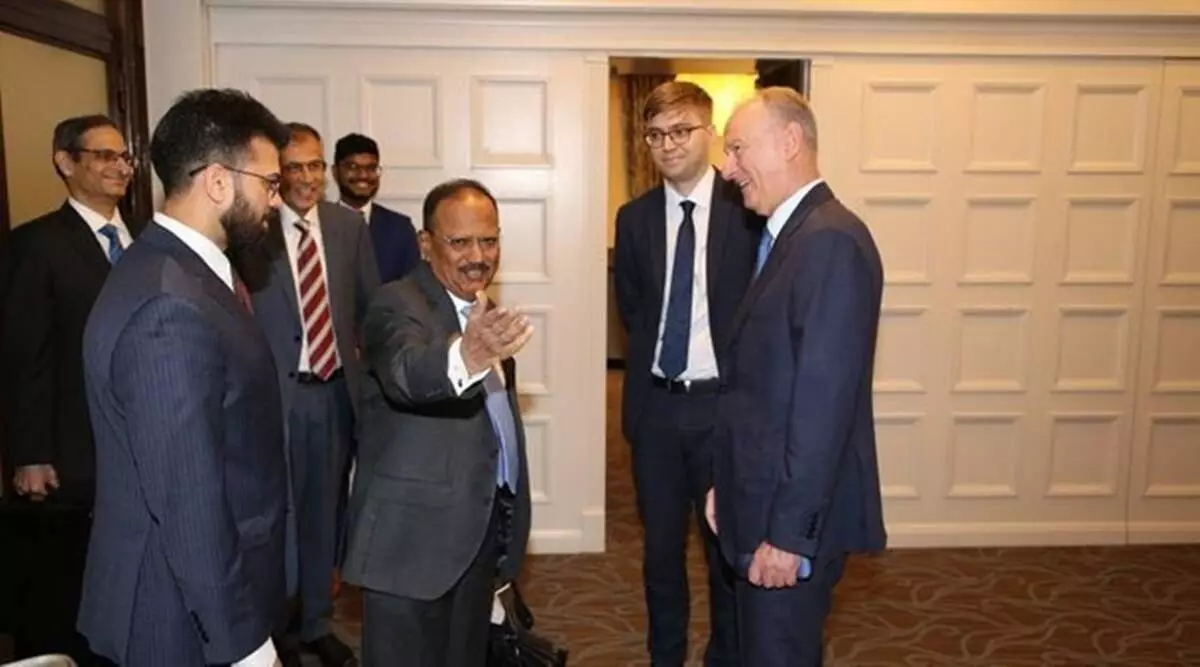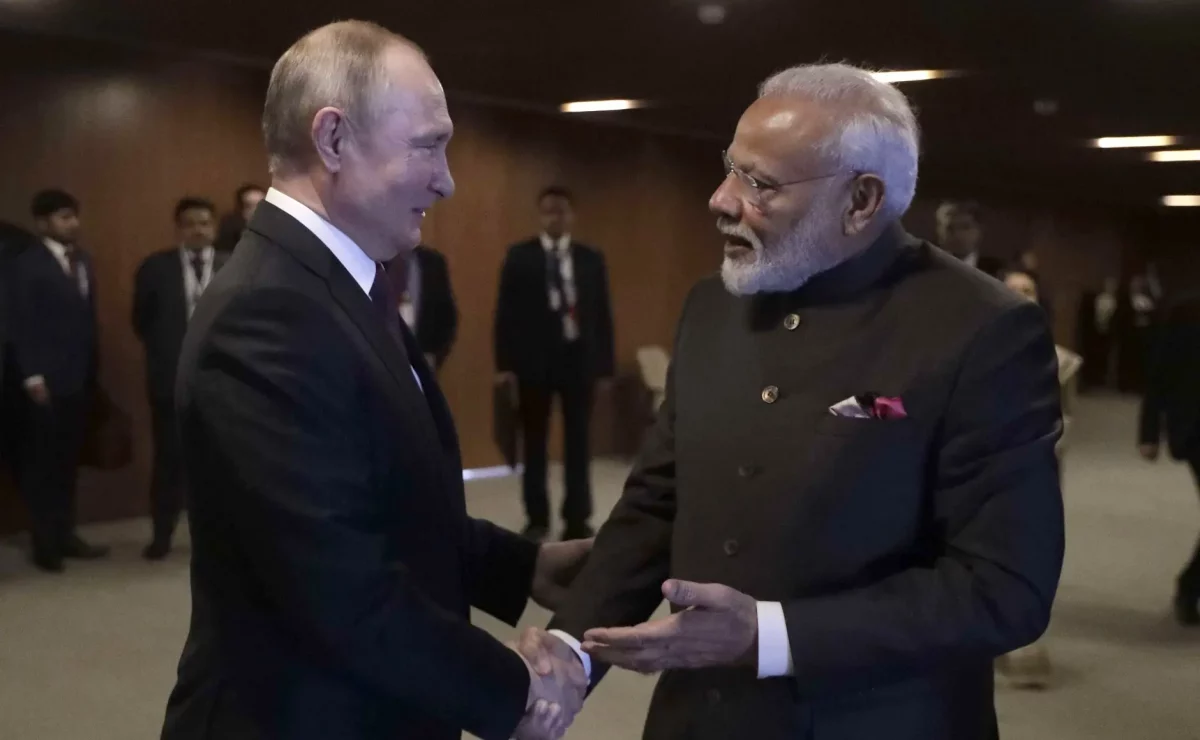Spotlighting its progressive relationship with like-minded partners, including India, Russia has said that a vast majority of countries in Asia, the Middle East, Africa and Latin America have not supported the sanctions imposed on Moscow because they are guided by their inherent national interests.
The significance of “reformatting of international interregional relations in the context of adapting Russia’s foreign policy to new geopolitical realities” topped the agenda when Russian Foreign Minister Sergei Lavrov met the Council of Heads of the Subjects of the Russian Federation under the Ministry of Foreign Affairs of Russia on Friday.
Citing Russian President Vladimir Putin’s “modern world is striving for multipolarity” statement, Lavrov stressed on deepening of relations with allies in SCO, BRICS, CSTO, CIS and the Eurasian Economic Union space, which Russia would chair in 2023.
The gathering was also told the relevance of region-to-region cooperation with India which has increased “by orders of magnitude” in recent times.
“Our partners are interested not only in increasing the supply of energy, agricultural products, fertilizers and precious metals from Russia, but also in setting up joint ventures in various fields,” said Lavrov about India.

Only last month, Putin, while appreciating India’s “independent” foreign policy, mentioned that Moscow and New Delhi are negotiating various ways of delivering energy resources to the Indian market.
On October 28, while addressing the final plenary session of the Valdai International Discussion Club, Putin not only called PM Narendra Modi “a patriot”, and appreciated his ‘Make in India’ initiative but also said that he believes that countries like India have not only a great future but also a growing role in international affairs.
“Prime Minister Modi is the man, one of those people in the world, who is able to pursue an independent foreign policy in the interests of his people. Despite any attempts to restrain something, to limit something, he, you know, as an icebreaker, is moving calmly in the direction necessary for the Indian state,” said the Russian President.
Earlier this month, on his first trip to Moscow since the start of the conflict in Ukraine, External Affairs Minister S Jaishankar underlined the “exceptionally steady and time-tested relationship” between India and Russia, two partners which continue to engage each other in an increasingly multi-polar and re-balanced world.
“Prime Minister Modi and President Putin met most recently in Samarkand in September. Our Defence Ministers spoke to each other. My colleague National Security Advisor Doval was in Moscow in August. Our Minister for Chemicals and Fertilizers was in Russia in June. And at the official level, I think, our colleagues have been in regular touch. And this is all very much in the spirit of our relationship,” said Jaishankar.

Carrying forward the comprehensive cooperation, Russia’s Deputy Foreign Affairs Minister Sergey Vasilyevich Vershinin arrived in New Delhi this week and held extensive consultations with Foreign Secretary Vinay Kwatra and Sanjay Verma, Secretary (West), Ministry of External Affairs, on Thursday.
Vershinin’s visit assumes importance as India takes over the chairmanship of the UN Security Council in December 2022.
“The consultations reaffirmed the mutual commitment to further strengthening bilateral coordination and constructive cooperation on the platform of the world organisation based on its Charter and in line with the especially privileged strategic partnership between Moscow and New Delhi,” said the Russian Foreign Ministry.
Also Read: Moscow conference urges Taliban to rein in terror groups in Afghanistan




















